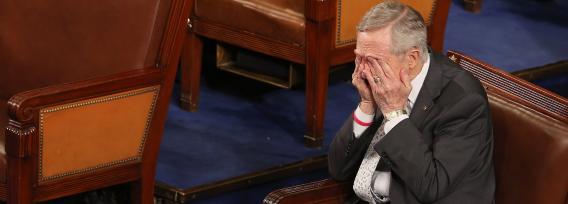It’s not surprising that the latest Gallup poll shows the American public has an overwhelmingly negative attitude toward the federal government, particularly Congress. What is surprising though, is how optimistic Americans are on the future of Washington politics.
We know that Congress’ approval rating has been stuck in a historically low rut for a while now, and Monday’s Gallup poll provides a complimentary statistic: 77 percent of Americans agree that “the way politics works in Washington these days is causing serious harm to the United States.” 19 percent disagreed. Current job approval rating for Congress? 18 percent. Republicans were more negative, but a clear majority of all party designations did not have a positive opinion about Washington politics.
Here’s where it gets interesting. While agreeing that “politics,” apparently Congress in particular, based on Gallup’s analysis, are causing “serious harm” to the country, Americans generally remain optimistic about the political process. When asked whether they’re “generally optimistic or pessimistic that the way politics work in Washington will improve in the next ten years,” 52 percent pegged themselves as optimistic while 45 percent were pessimistic. Democrats were more positive than Republicans or independents. The big question: Where is this optimism coming from?
Some might chalk up this optimism as a symptom (or cause) of notions of American exceptionalism, a waning belief according to this 2011 Pew poll, which found that just about half of Americans believe their culture is superior to other nations. But, despite the similar shares of the American public, the optimists and exceptionalists don’t quite line up. Exceptionalists trend older, while the Gallup poll found optimism levels slightly higher among younger Americans. There just doesn’t seem to be a clear explanation to fully explain the gap between current low opinions and high hopes for the future. An optimist could argue that the positive outlook for a decade from now comes from an intent to do something to fix what Americans perceive to be wrong, but historically, Americans don’t generally receive high grades in political participation.
